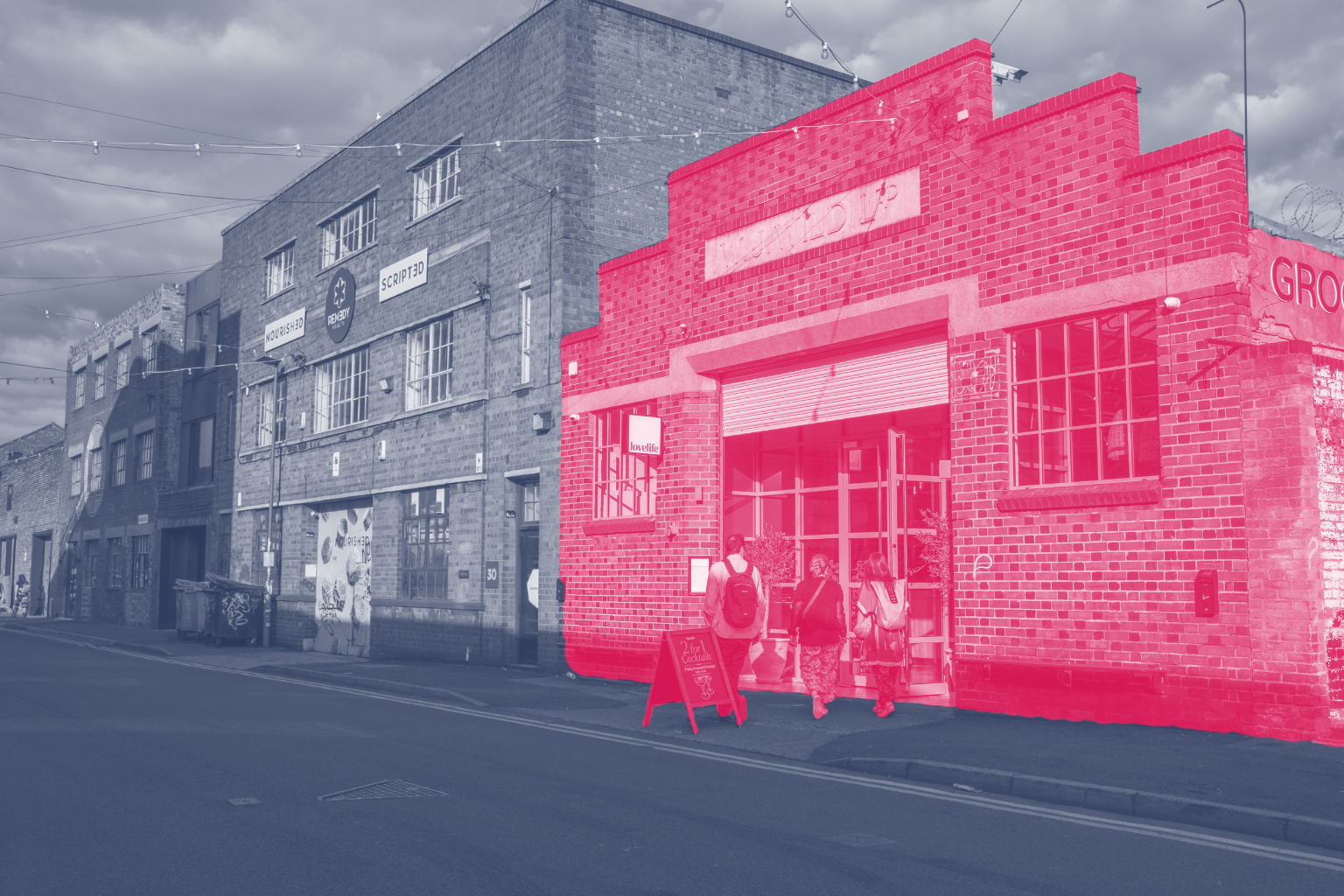

“The future is already here. It’s just not very evenly distributed.”
William Gibson
The last decade has seen society transform at breakneck speed. Often, this has been credited to the “Fourth Industrial Revolution” (4IR), a term describing the rise of digital technologies, big data, and automation. Yet behind the headlines celebrating artificial intelligence (AI) and process automation lies a deeper transformation, one that is reframing the purpose of technology itself. Far from a mere upgrade to 4IR, this shift signals the dawn of the Fifth Industrial Revolution (5IR). Unlike 4IR, defined by its rapid adoption of emerging tools, 5IR puts human and societal needs at the forefront. It upholds ethics, social welfare and tangible public benefits above pure efficiency and rejects the technological absolutism of tech bros like Elon Musk. In this blog, I will examine why the Fifth Industrial Revolution is already upon us and discuss its implications for government and public services.
Industrial revolutions have always harnessed new technologies to change how we produce, communicate and organise society. The First used steam and waterpower to drive mechanisation. The Second introduced electricity, unlocking mass production at scale. The Third ushered in computing, transforming data storage and processing. The Fourth built on that foundation with AI, the Internet of Things and robotics, making processes faster and more autonomous. Yet each of these revolutions mainly pursued gains in productivity or cost-effectiveness. In effect, people adapted to machines rather than machines adapting to the evolving aspirations of society.
The Fifth Industrial Revolution changes the question. Instead of asking, “How can we accelerate or automate processes even further?” we are now asking, “Who does this innovation serve, and does it genuinely improve lives?” Yes, AI and data analytics remain central to 5IR, but they must operate within a wider framework of ethics, compassion and social responsibility. Governments must increasingly recognise that if new technologies fail to address real problems, like health inequalities, climate changes and declining trust in public institutions, then these advances cannot be deemed true progress.
For the UK government (and its counterparts in elsewhere), the Fifth Industrial Revolution poses both opportunities and challenges. On the one hand, technologies like AI-based decision-support tools have the potential to target resources more effectively, support earlier interventions in public services, and improve policy making. On the other hand, there is the risk of exacerbating inequities if these technological innovations lack transparent governance and robust ethical usage guidelines. The promise of 5IR is that the technology we deploy, whether in the NHS, welfare, in crime and justice or a local authority, will be shaped by human and societal considerations from day one, rather than relying on a reductive ‘numbers first’ approach.
A prime example is the NHS. Over the 4IR era, the push was to digitise patient records and apply automation to tasks like scheduling and pharmacy stock management. The result was some improved efficiency, fewer lost files, quicker turnarounds; but 5IR goes further by challenging the broader service model. It asks, “How do we ensure AI diagnostics actually reduce health disparities?” or “How can digital systems be codesigned with patients to improve trust, consent, and genuine empowerment?” NHS trusts in places like London and Manchester are beginning to explore data ethics boards and user co-creation sessions, helping make sure that new tools address real needs yet this is still new territory and we don’t have any clear consensus on how to balance the risk of harm and the opportunity of more for less.
Readers will recall the era of Sir Michael Barber’s “Deliverology,” when target-setting under Tony Blair’s government was hailed for generating quick improvements, for instance in reducing hospital waiting times and famously, in school exam results. While beneficial in some respects, Deliverology tended to prize output-driven metrics above the experiences of frontline workers and service users. Under the Fourth Industrial Revolution, these targets became ever more sophisticated via data dashboards. However, under Barber policymakers sometimes fell into the trap of chasing numerical achievements rather than truly improving peoples’ lives.
The Fifth Industrial Revolution, by contrast, requires a more mission-led ethos, I would contend. The question is not “did we hit a particular KPI?” but “have we genuinely tackled local disparities, or improved patient health outcomes across the board?” Real-time data dashboards can still help, but they must be deployed as part of a holistic approach that aligns citizen engagement, ethical oversight and frontline expertise. Instead of imposing technology from the centre, local authorities, charities and service users should be offered the opportunity to collaborate to shape solutions that fit their contexts. This aligns with efforts in several UK localities, Cornwall, for example, where councils and voluntary groups are working together to pilot digital tools for adult social care, with the explicit aim of reducing social isolation rather than merely meeting “efficiency” targets.
A hallmark of 5IR is that it views AI and robotics as collaborators rather than human workforce replacements. Where 4IR sometimes triggered fears of job losses, 5IR reframes the conversation to ask how AI can free up professionals, teachers, nurses, civil servants, to focus on empathy, creativity and problem-solving. For UK public services under budget pressures, that is no small promise. Automation can indeed handle some repetitive tasks but it should be accompanied by an investment in training civil servants and frontline staff to harness these systems effectively. The goal is not just cost-cutting, but enabling staff to add greater strategic and interpersonal value.
Yet, the UK Government Digital Service (GDS) experience and other reforms have taught us that technology can just as easily go wrong if ethics and accountability are afterthoughts. From bias in AI-assisted benefit eligibility checks to the complexities of surveillance technology used by local councils, there are clear warning signs that advanced systems must be governed carefully. 5IR seeks to embed principles of fairness, transparency and oversight from the outset. The Centre for Data Ethics and Innovation is already helping shape best practice in AI governance, but more integrated frameworks across Whitehall and local government may be needed to ensure consistent ethical standards.
Why is 5IR so relevant now? Because many of the issues faced by governments, be it social care funding or the Net Zero transition, cannot be solved solely by rationalising processes. 5IR flips the script. Rather than “technology seeking a use case,” it starts with the societal challenge. Councils in cities like Birmingham have set up “digital labs” in partnership with universities and local residents, where they test AI tools for tasks such as traffic management or budgeting. Crucially, these labs also involve ethicists, community leaders and service users who can flag potential biases.
Critics may call the talk of a new industrial revolution overblown, noting that AI and machine learning were well under way years ago. However, the difference is that the conversation now revolves around “how to adopt technology responsibly,” rather than just “how to adopt technology rapidly.” Government and industry leaders alike face mounting pressure to demonstrate that each new platform or algorithm delivers social value. Indeed, the UK’s evolving regulatory approach to AI aims to strike a balance between encouraging innovation and protecting citizens, signalling that pure technological determinism no longer holds sway although challenges remain. Credibility is being stretched by the lack of transparency around the work of ARIA, for example.
While the Fifth Industrial Revolution is still in its formative stages, the momentum behind human-centred innovation is undeniable. In the UK, as well as Australia, New Zealand, and Canada, we can see local authorities, government departments and NGOs increasingly embracing an ethical, mission-driven approach. The Fourth Industrial Revolution excelled at unlocking speed and scale, but often left ethical, social and democratic questions on the margins. The Fifth Industrial Revolution seeks to put these questions at its heart, asking not just how technology can be deployed but why we choose particular solutions and whose lives are ultimately improved.
From the NHS’s new patient-centred pilots to data-driven local government initiatives, the challenge is to ensure that gains in efficiency do not overshadow the deeper purpose of public service: uplifting communities, reducing inequalities, and strengthening societal trust. By balancing the promise of AI with ethical guardrails and genuine co-creation, government leaders can shape a future where technology truly serves the public interest. That is what 5IR stands for, and that is why it matters now more than ever.
Vijay has worked across the UK’s public services landscape as a consultant and advisor to senior leaders within the NHS, in the UK Ministry of Defence and the start-up sector, amongst others. Vijay is a renal transplantee and an advocate for neurodiverse talent as he has ADHD. He was formerly a Councillor in the London Borough of Southwark.
View all posts